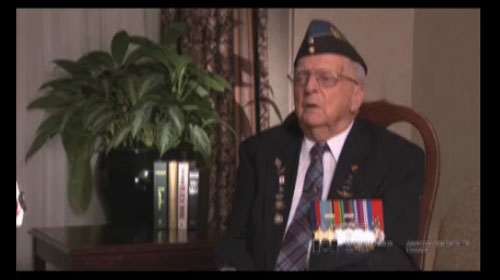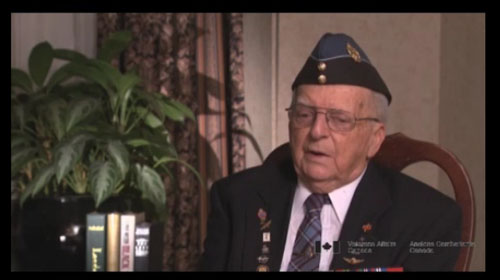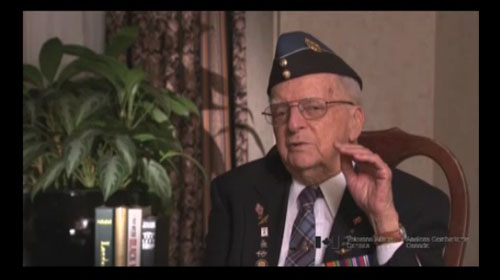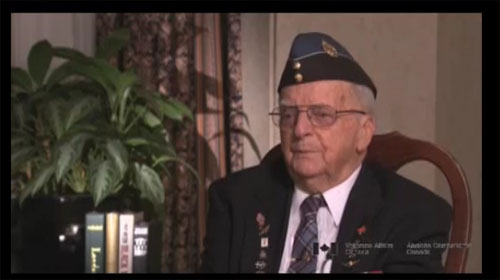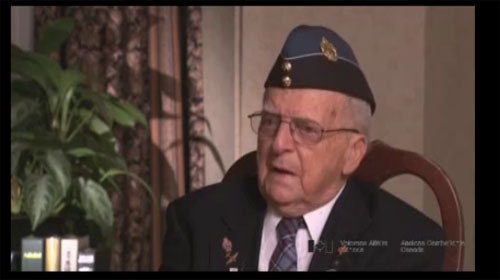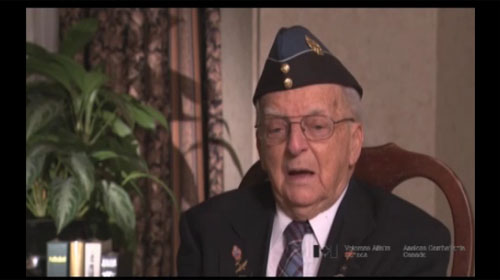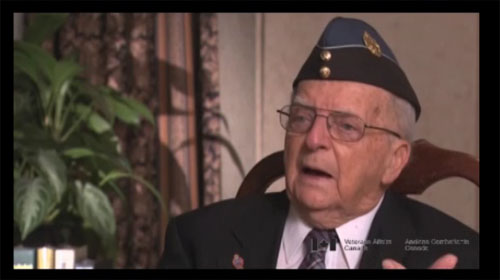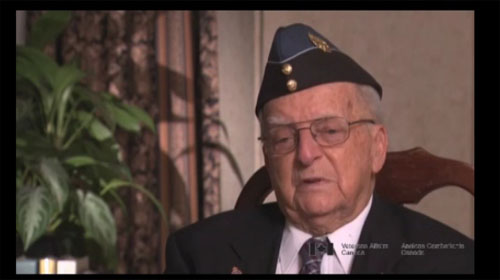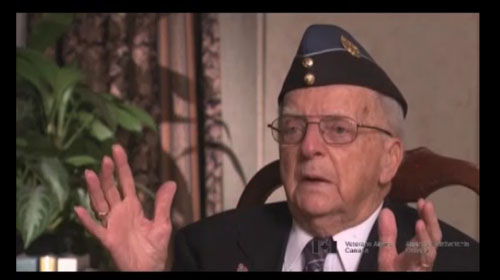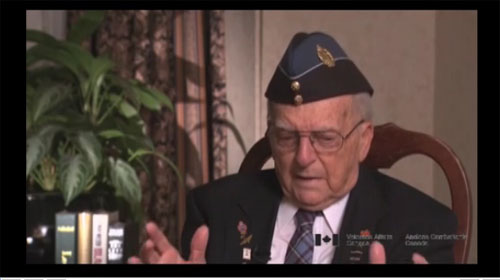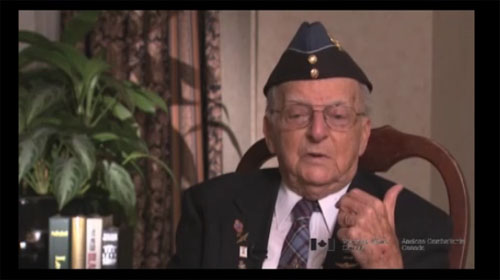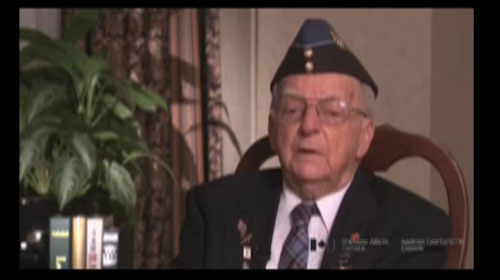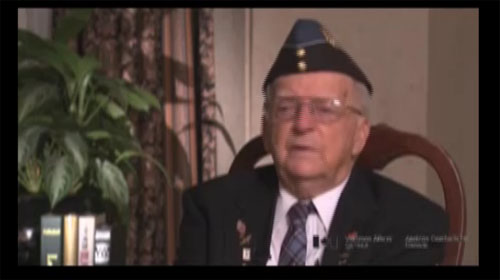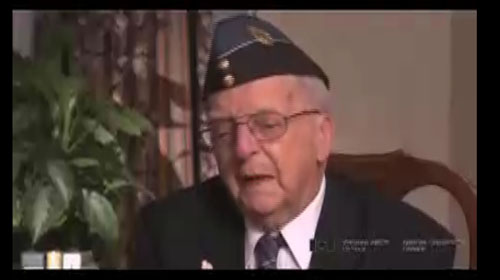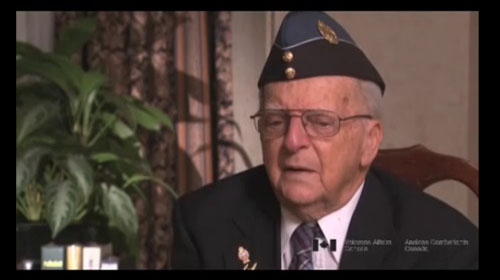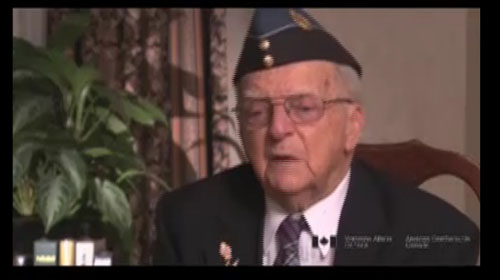Closer to Freedom
Heroes Remember
Closer to Freedom
Transcript
Description
Mr. Carter-Edwards credits a doctor who treated him at camp and a young Dutch record keeper who kept his name off a list for quarry duty with ultimately saving his life.
Ed Carter-Edwards
Edward (Ed) Carter-Edwards was born on April 2, 1923, in Montréal, Quebec, and was raised in Hamilton, Ontario. He enlisted in August 1942, and then joined 427 (Lion) Squadron, 6 Royal Canadian Air Force Group, in Leeming, England. He was a wireless operator air gunner and completed 21 successful missions in a Halifax bomber. On his 22nd mission, Mr. Carter-Edwards was shot down near Paris. He was betrayed to the Gestapo by a collaborator, threatened with execution and forced into the Fresnes prison, near Paris. He spent five weeks in the prison in 1944 followed by a five-day trip in a French cattle car to the notorious Buchenwald concentration camp. He was there for three and a half months as one of 26 Canadians - 168 allied airmen in all. He was forced to participate in two death marches shortly before the end of the war. Once released from service and safely back home, Mr. Carter-Edwards returned to Hamilton and worked at the appliance manufacturer Westinghouse. He was married in 1946, and he and his wife raised three children.
Meta Data
- Medium:
- Video
- Owner:
- Veterans Affairs Canada
- Recorded:
- June 25, 2012
- Duration:
- 2:51
- Person Interviewed:
- Ed Carter-Edwards
- War, Conflict or Mission:
- Second World War
- Location/Theatre:
- Japan
- Battle/Campaign:
- Bomber Command
- Branch:
- Air Force
- Units/Ship:
- 4th Medium Artillery Regiment
- Occupation:
- Wireless Air Gunner
Related Videos
- Date modified:



